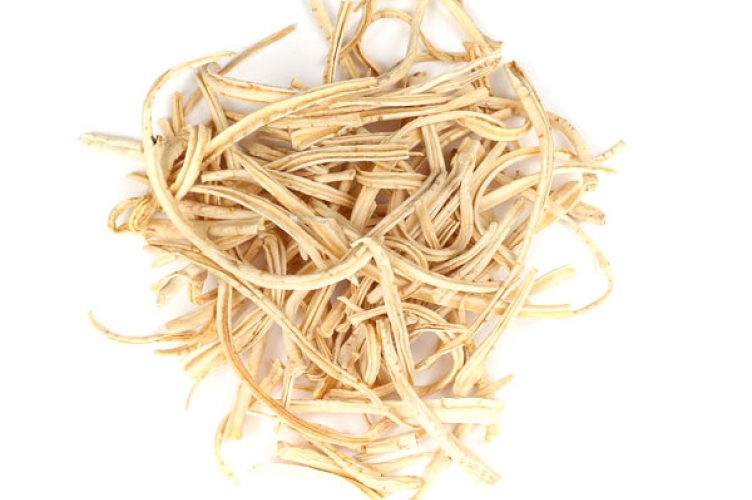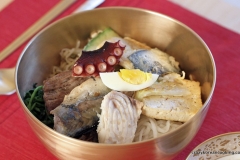Doraji, Bellflower Root 도라지

Doraji is the root of the balloon flower, native to East Asia (China, Korea, Japan and East Siberia). It is also referred to as the Korean bellflower, Chinese bellflower, and Japanese bellflower. Whether dried or fresh, Doraji is a popular ingredient in salads and traditional Korean cuisine. Similar in appearance to ginseng roots, they are meaty but have crunchiness also. Doraji also has an herb-like bitterness that is very earthy and subtly pleasant. It is a well-loved root vegetable in Korea. It's used as an important ingredient in bibimbap, as well as a side dish (namul). Doraji are sold both fresh and dried. Asian herbal medicine suggests that this root to enhances immune function and also acts as an anti-inflammatory.
Sourcing & Selecting
CrazyKoreanShopping.com
Korean grocery market













